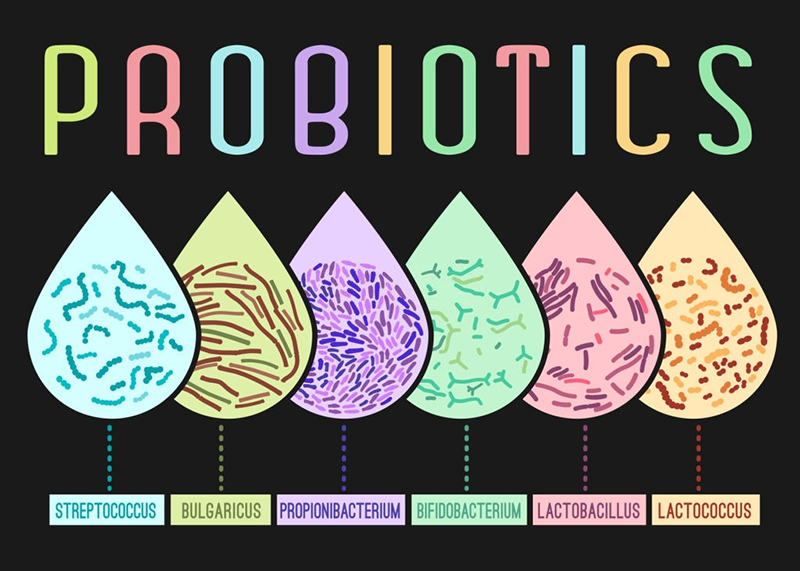Gut Health 101: How Probiotics Can Improve Your Digestive System
Our digestive system is a complex network of organs and tissues that work together to break down food, absorb nutrients, and eliminate waste. A healthy gut is essential for overall health and wellbeing, and probiotics can play an important role in maintaining gastrointestinal health.
What are Probiotics?
Probiotics are live microorganisms that are beneficial for gut health when consumed in sufficient quantities. These microorganisms can include different strains of bacteria, yeast, or other organisms that are naturally present in our bodies or can be found in probiotic supplements and fermented foods.
Probiotics work by restoring the balance of healthy bacteria in the gut microbiome, which is the collection of microorganisms that live in our digestive system. Our gut microbiome plays a crucial role in digestion, immune function, and overall health, and maintaining a healthy balance of bacteria is key to supporting these functions.
Benefits of Probiotics for Digestive Health
Probiotics have been shown to improve several digestive health conditions, including:
- Diarrhea and constipation: Probiotics can help regulate bowel movements and alleviate symptoms of diarrhea and constipation.
- Inflammatory bowel disease (IBD): Probiotics may help reduce inflammation in the gut and improve symptoms of IBD, including Crohn’s disease and ulcerative colitis.
- Irritable bowel syndrome (IBS): Probiotics have been shown to relieve symptoms of IBS, including abdominal pain, bloating, and constipation.
- Colic: Probiotics may help reduce crying and fussiness in infants with colic by improving gut microbiome balance.
- Antibiotic-associated diarrhea: Probiotics can help prevent diarrhea that sometimes develops after taking antibiotics by replenishing healthy bacteria in the gut.
Probiotics may also have broader health benefits beyond digestive health, including supporting immune function, reducing inflammation, and improving mental health.
Sources of Probiotics
Probiotics can be found in dietary supplements or added to foods and beverages. Some of the best food sources of probiotics include:
- Yogurt: Yogurt is a fermented dairy product that contains live cultures of probiotics, including Lactobacillus and Bifidobacterium.
- Kefir: Kefir is a fermented dairy product similar to yogurt that contains a variety of probiotic strains.
- Sauerkraut: Sauerkraut is a fermented cabbage dish that contains Lactobacillus bacteria.
- Kombucha: Kombucha is a fermented tea that contains various strains of probiotics and yeast.
Probiotic supplements can also be a convenient and effective way to increase your intake of beneficial bacteria. When choosing a probiotic supplement, look for products that contain a high number of live active cultures and a variety of different strains.
Prebiotics vs. Probiotics
Prebiotics are another type of dietary supplement that can support gut health. Unlike probiotics, which are live microorganisms, prebiotics are indigestible fibers found in certain foods that serve as food for beneficial bacteria in the gut microbiome.
While prebiotics and probiotics work together to support gut health, they serve different functions. Prebiotics provide nourishment for healthy bacteria in the gut, helping them thrive and multiply. Probiotics, on the other hand, are living organisms that colonize the gut and provide additional health benefits on their own.
Conclusion
Probiotics can be an effective way to support digestive health and maintain a healthy gut microbiome. While they are not a panacea for all gut health issues, research has demonstrated their effectiveness in improving several conditions. By increasing your intake of probiotic-rich foods or supplements, you can support a healthy balance of bacterial in your gut and promote overall health and wellbeing.







